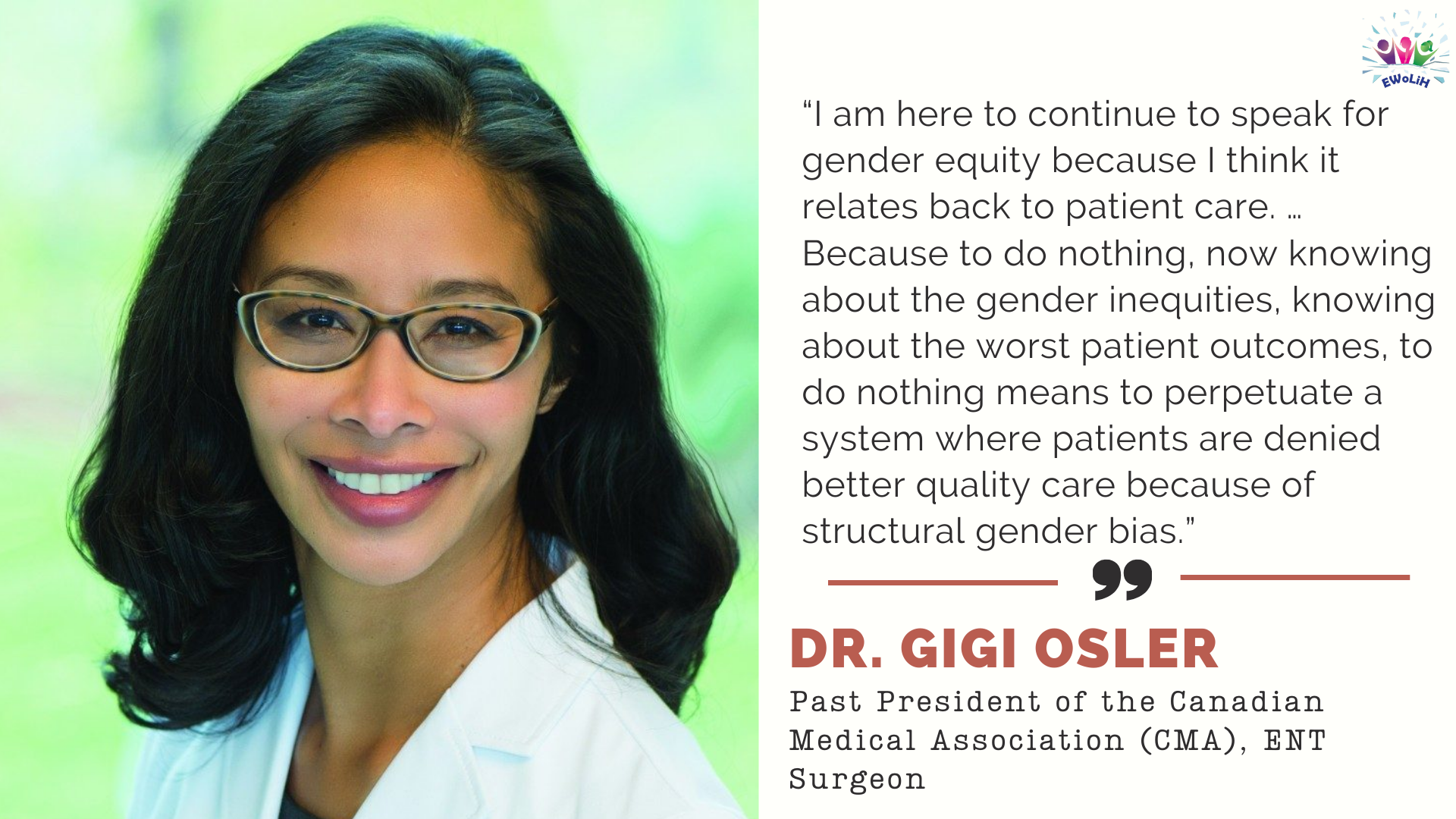
Goal-Oriented Leaders
Set Directions
Strategically Align Decisions with Vision, Values, and Evidence
Take Action to Implement Decisions
Assess and Evaluate
Achieve EDI-Informed Results
Ivy Lynn Bourgeault, University of Ottawa & Canadian Health Workforce Network
The third A in the LEADS Framework, Achieve Results, focuses on goal-oriented leaders. The four capabilities – set direction; strategically align decisions with vision, values and evidence; take action to implement decision and assess; and evaluation – are all relevant to EDI. EDI-informed, goal-oriented leaders dedicate resources to address EDI outcomes and embed these processes within their department, division, or organization. First, leaders must establish a baseline knowledge through environmental scanning and audits of EDI data (e.g. staff, clients, and services), if they do not already exist. Next, they must consult a diverse range of interested stakeholders in high-level meetings to reach a (near to) consensus direction of EDI initiatives that are in alignment with organizational vision and values. These EDI plans must be resourced, implemented, and acted upon and supported with evidence-informed tools. One made-in-Canada EDI toolkit, developed from the Empowering Women Leaders in Health initiative, is available on the LEADS platform . Tools include EDI-aware hiring and promotion practices and EDI-supportive organizational policies, processes, and culture. Continuous monitoring, reassessment, and evaluation to track progress towards EDI goals and resetting direction for continuous improvement must be embedded in organizational processes for optimal results.
Nurse practitioner affecting systems change in the context of a LEADS leadership framework: Experience from the field.
This study identifies a new role for Adance Practice Nurse/Nurse Practicioner as the clinical planning lead in order to develop a model of care and service delivery or children living with health complexity.
Think twice: Co leadership and representation of women
This paper reflects on co-leadersship and the gender disparity in senior health-care positions.
Strategies to improve women’s leadership preparation for early career global health professionals: suggestions from two working groups
This paper presents a framework which improves strategies used to advance women's leadership.
We Aren’t Just ‘Slack’ing Off: Utilizing a Digital Tool to Connect Emerging Women Leaders in Global Health
This paper analyzes how digital tools help in building a model that contribute to the career advancement of women leaders in global health.
Organisational strategies for women nurses to advance in healthcare leadership: a systematic review
This paper proposes to focus on systemic level strategies to help women nurses attain leadership roles in heatlh care.
Experiences of Organizational Practices That Advance Women in Health Care Leadership
This paper developed a model to explain organizational practices that advance women in health care leadership such as building a supportive culture and mentoring.
Factors that influence the implementation of organisational interventions for advancing women in healthcare leadership: A meta-ethnographic study.
The paper focuses on factors that promote gender equity in healthcare and healthscience leadership.
Advancing women in healthcare leadership: a systematic review and meta-synthesis of multi-sector evidence on organisational interventions
This study establishes concepts and strategies to help advance women in leadership.
Inclusion, diversity, equity, and accessibility: From organizational responsibility to leadership competency
This paper identifies different categories of healthcare organisational interventions that promote inclusion, diversity, equity, and accessibility.
Women in the health and care sector earn 24 percent less than men
A report by the International Labour Organization and the World Health Organization discovered that women in health care in Geneva earn 24 percent less than their male peers. This wage gap is mostly unexplainable and varies throughout countries.
How to be an active bystander
This guide was created to assist organizations in implementing bystander actions as part of their efforts to prevent sexist and sexually harassing behaviors. It defines bystander action and describes four important stages for establishing successful bystander programs.
In health care, do the people in power reflect the people they serve?
Despite initiatives to promote diversity on Ontario healthcare boards, visible minorities account for just 22% of LHIN boards and 14% of hospital boards. Prioritizing professional backgrounds, time restraints, and fundraising duties are all obstacles. Camille Orridge emphasizes the need of taking a comprehensive strategy to ensuring that community perspectives are heard.
Give her a reason to stay in healthcare
The infographic is a campaign for the course "Career Advancement and Leadership Skills for Women in Healthcare" to find ways to suport women in medicine withing the organizations and healthcare institutions.
Men should reach out to women interested in leadership roles, encourage them to apply and offer to serve them as their ally.
In the quote by Bill Tholl, founding executive director of the Canadian Health Leadership Network affirms that it is necessary but not sufficient to mentor those that are behind you but also sponsor them. The distinction there is not just to point to doors, but to actually help doors open.























